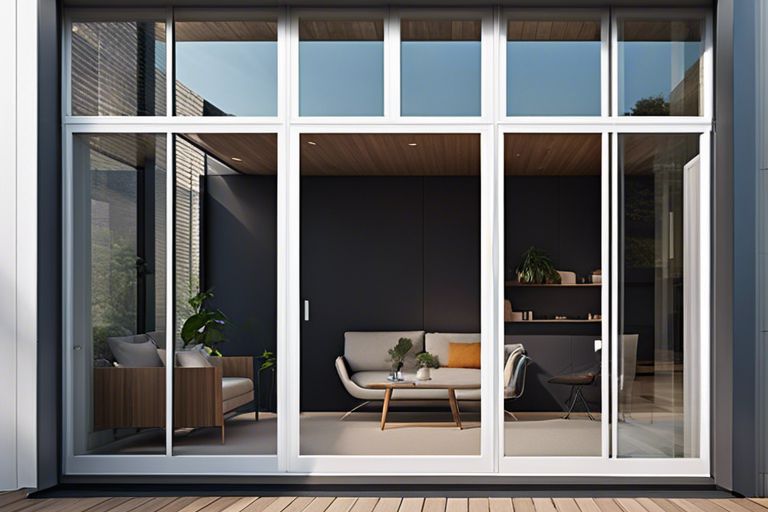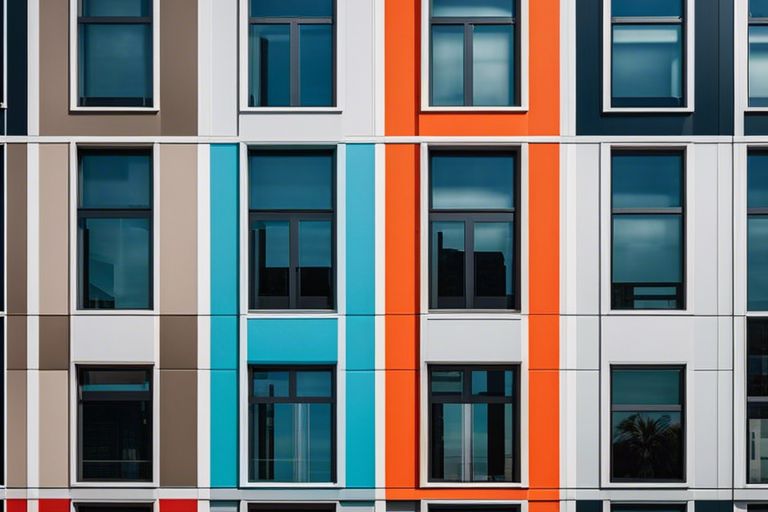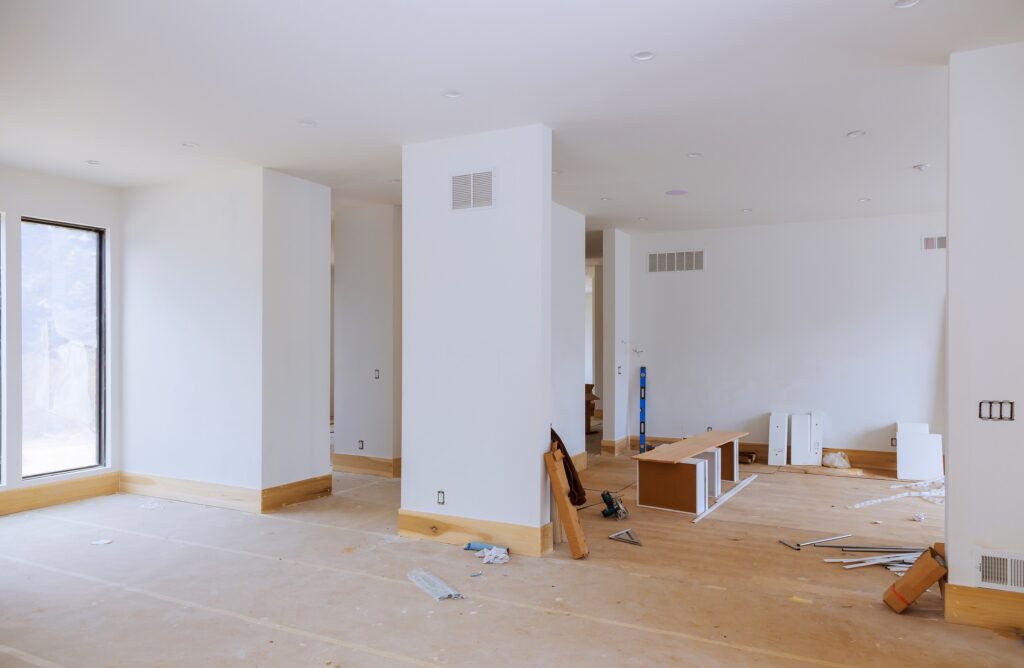Welcome to our informative blog post where you will discover the best glazing options for aluminium windows. Choosing the right glazing for your windows is crucial for the energy efficiency and security of your home. In this post, you will learn about the most important factors to consider when selecting glazing for aluminium windows, as well as the dangerous pitfalls to avoid. By the end of this article, you will be equipped with the knowledge to make informed decisions about the glazing options that are best suited for your aluminium windows.
Key Takeaways:
- Double-glazed units: These are the most popular choice for aluminium windows due to their excellent thermal insulation and noise reduction properties.
- Laminated glass: Ideal for security and safety, especially in ground-level or commercial applications, as it provides protection against break-ins and can hold together even when shattered.
- Tinted or reflective glass: Offers enhanced privacy and solar control, reducing glare and heat transfer while still allowing natural light to enter the building.

Types of Glazing for Aluminium Windows
When it comes to choosing the glazing options for your aluminium windows, there are several factors to consider. Each type of glazing offers different benefits and drawbacks, so it’s important to weigh your options carefully. Below, we will break down the most common types of glazing for aluminium windows into a table with 2 columns and 5 rows:
| Type of Glazing | Key Features |
|---|---|
| Single Glazing | A single pane of glass, provides minimal insulation. |
| Double Glazing | Two panes of glass with a layer of air or gas in between, provides better thermal and sound insulation. |
| Triple Glazing | Three panes of glass with two layers of air or gas in between, offers the highest level of insulation. |
| Laminated Glass | Consists of two or more panes with a layer of PVB, provides enhanced security and UV protection. |
| Low-E Coating | A thin metallic coating to reduce heat transfer, maintains comfortable indoor temperatures. |
Single vs Double vs Triple Glazing
When it comes to the number of panes in your glazing, each option offers different levels of insulation and energy efficiency. Single glazing is the most basic option, providing minimal insulation. Double glazing, on the other hand, offers improved thermal and sound insulation by having two panes with a layer of air or gas in between. Triple glazing takes it a step further, with three panes and two layers of air or gas for the highest level of insulation. The choice between single, double, or triple glazing will depend on your specific needs and budget.
Specialized Glazing Options
In addition to the standard single, double, and triple glazing options, there are also specialized glazing options available for aluminium windows. These include laminated glass, which offers enhanced security and UV protection, as well as low-E coating, which helps to reduce heat transfer and maintain comfortable indoor temperatures. Depending on your specific requirements, these specialized glazing options may be worth considering for your aluminium windows.
“`
Energy Efficiency and Performance
When it comes to choosing the right glazing options for your aluminium windows, energy efficiency and performance are key factors to consider. The right glazing can significantly impact the overall energy efficiency of your windows, as well as their ability to provide comfort and performance in various weather conditions. To explore the ideal glass options for system aluminium windows, you can read more about it here.
Thermal Insulation Properties
One of the most important aspects of energy efficiency in aluminium windows is their thermal insulation properties. The right glazing can help to minimise heat loss during the colder months, keeping your home warm and comfortable. Additionally, it can also help to reduce heat gain during the warmer months, keeping your home cool and reducing the need for excessive air conditioning. Investing in glazing with high thermal insulation properties can significantly improve the overall energy efficiency and performance of your aluminium windows.
Sound Insulation and UV Filtering
In addition to thermal insulation, the right glazing options for aluminium windows should also provide sound insulation and UV filtering properties. Effective sound insulation can help to reduce external noise, creating a quieter and more peaceful indoor environment. Furthermore, UV filtering can protect your furniture, flooring, and other belongings from the damaging effects of the sun’s UV rays. Look for glazing options with advanced sound insulation and UV filtering capabilities to enhance the performance and comfort of your aluminium windows.
By considering the thermal insulation, sound insulation, and UV filtering properties of different glazing options, you can make an informed decision when choosing the best-suited options for your aluminium windows. Investing in high-quality glazing will not only improve the energy efficiency and performance of your windows but also enhance the comfort and overall living experience within your home.
Aesthetic and Design Considerations
When choosing the glazing options for your aluminium windows, you need to consider both the aesthetic appeal and design functionality. The right glazing can enhance the visual appeal of your property while also providing practical benefits such as improved energy efficiency and increased security. You can find more detailed information about different types of glass options for aluminium windows here.
Clear and Tinted Glazing
Clear and tinted glazing options are popular choices for aluminium windows as they allow natural light to enter your property while also providing some level of privacy and UV protection. The tinted options can help reduce glare and heat, making your indoor space more comfortable. Additionally, clear and tinted glazing can improve the energy efficiency of your property by reducing the need for excessive heating or cooling.
Patterned and Frosted Options
If you are looking for a more decorative option, patterned and frosted glazing can add a touch of elegance to your aluminium windows. These options can provide privacy while still allowing light to filter through. They are often used in areas such as bathrooms and front entryways to enhance the overall design of the space.
Installation and Maintenance
When it comes to the installation and maintenance of your aluminium windows, there are important factors to consider in order to ensure their longevity and effectiveness.
Professional Installation Best Practices
When it comes to the installation of aluminium windows, it is crucial that you seek the expertise of a professional. Proper installation is essential to ensure that your windows are securely fitted and sealed, thereby preventing any potential issues such as leaks or draughts. By entrusting the installation to a qualified professional, you can be assured that the job will be carried out to the highest standard, minimising the risk of any future complications.
Long-term Maintenance and Care
Once your aluminium windows are installed, it’s important to be mindful of their long-term maintenance and care. While aluminium is known for its durability, it’s essential to regularly inspect the windows for any signs of wear and tear, and address any issues promptly. Simple maintenance tasks, such as cleaning the frames and regularly checking the seals, will help to prolong the lifespan of your windows and ensure that they continue to function at their best.
Conclusion
Hence, when considering the best glazing options for your aluminium windows, it is important to take into account factors such as energy efficiency, durability, and security. Double or triple glazing with low emissivity coatings may be the best choice for reducing heat loss and increasing thermal performance. Additionally, laminated or toughened glass can provide extra security and safety. Ultimately, the best glazing options for your aluminium windows will depend on your specific needs and preferences, so it is important to carefully consider all available options before making a decision.
FAQ
Q: What glazing options are best suited for aluminium windows?
A: The best glazing options for aluminium windows are double glazing and low-emissivity (low-e) glass. These options offer superior insulation and energy efficiency, making them the ideal choice for aluminium windows.
Q: What is double glazing?
A: Double glazing refers to windows that are made with two panes of glass with a layer of air or gas between them. This design provides better thermal insulation and helps to reduce noise and condensation.
Q: What are the benefits of low-emissivity glass?
A: Low-emissivity (low-e) glass has a special coating that reflects heat while still allowing light to pass through. This results in improved energy efficiency as it helps to keep the heat inside during the winter and outside during the summer.
Q: Are there any other glazing options for aluminium windows?
A: In addition to double glazing and low-e glass, there are other options such as tinted glass, laminated glass, and toughened glass. These options can provide additional benefits such as improved security, UV protection, and enhanced aesthetic appeal.
Q: Can I customise the glazing options for my aluminium windows?
A: Yes, you can customise the glazing options for your aluminium windows based on your specific requirements and preferences. Your window supplier can offer a range of glazing options to choose from, allowing you to tailor the glazing to suit your needs.
Q: How do I choose the best glazing option for my aluminium windows?
A: When choosing the best glazing option for your aluminium windows, consider factors such as thermal performance, acoustic insulation, security, and aesthetic appeal. It’s also important to consult with a professional to determine the most suitable glazing option for your specific location and climate.
Q: Are there any maintenance considerations for different glazing options?
A: Different glazing options may have varying maintenance requirements. For example, tinted glass may require special cleaning techniques, while toughened glass offers increased durability. It’s important to consider the maintenance requirements of each glazing option and choose one that aligns with your maintenance preferences and capabilities.






